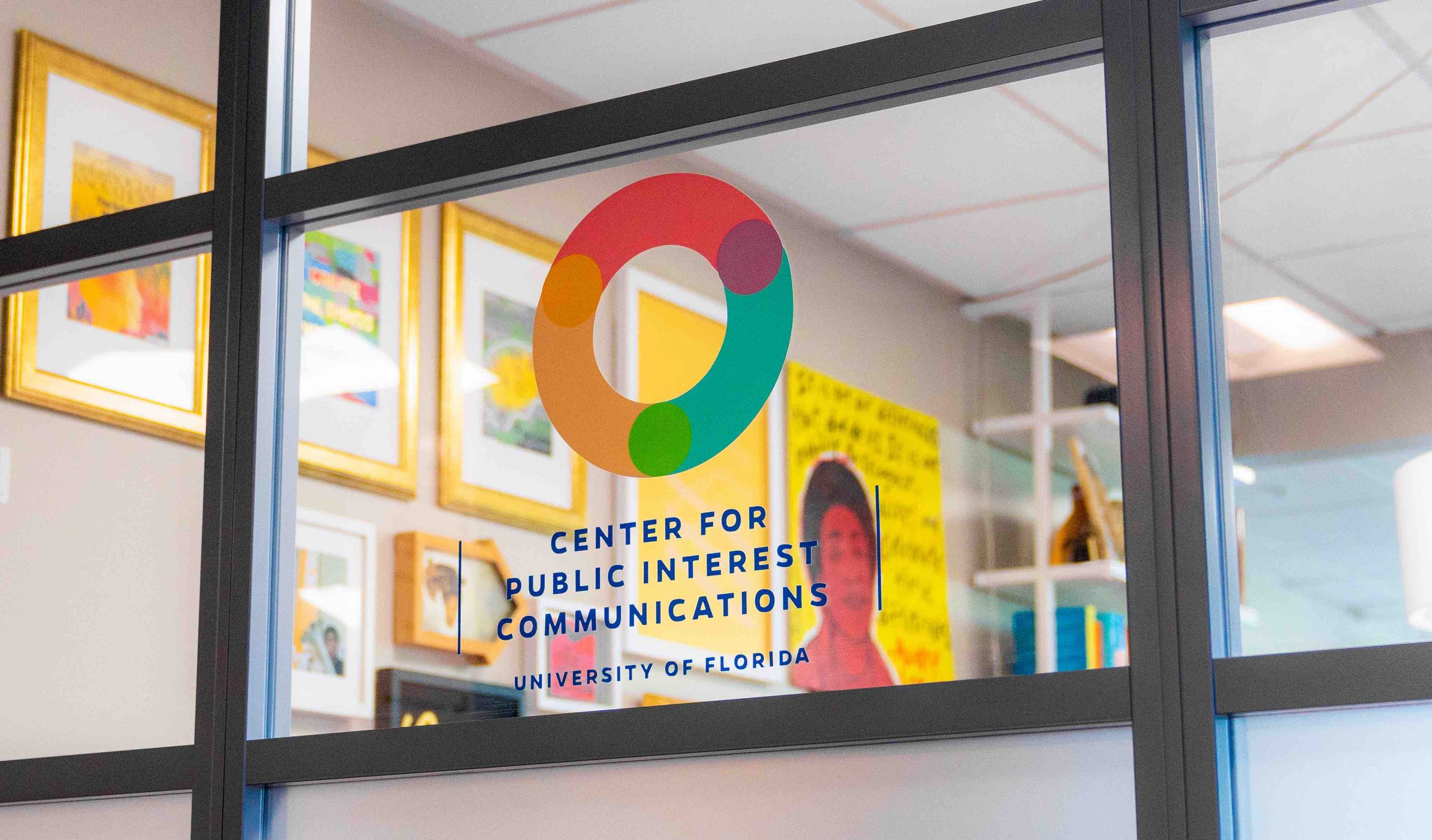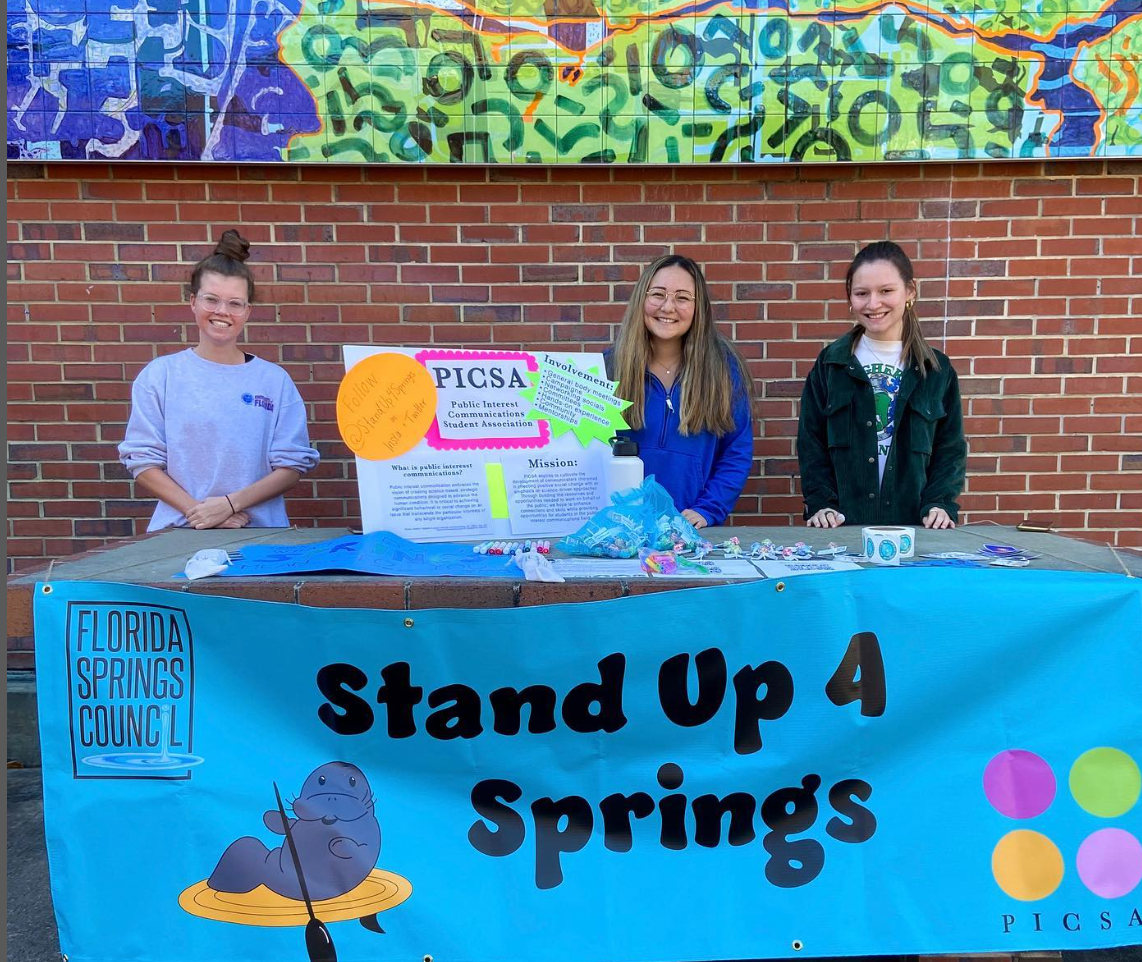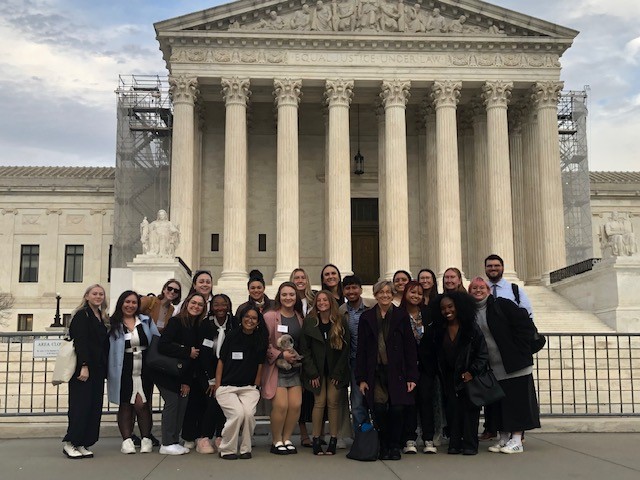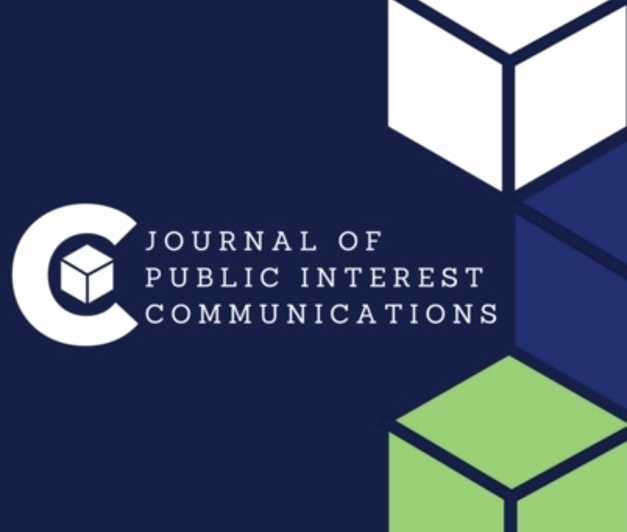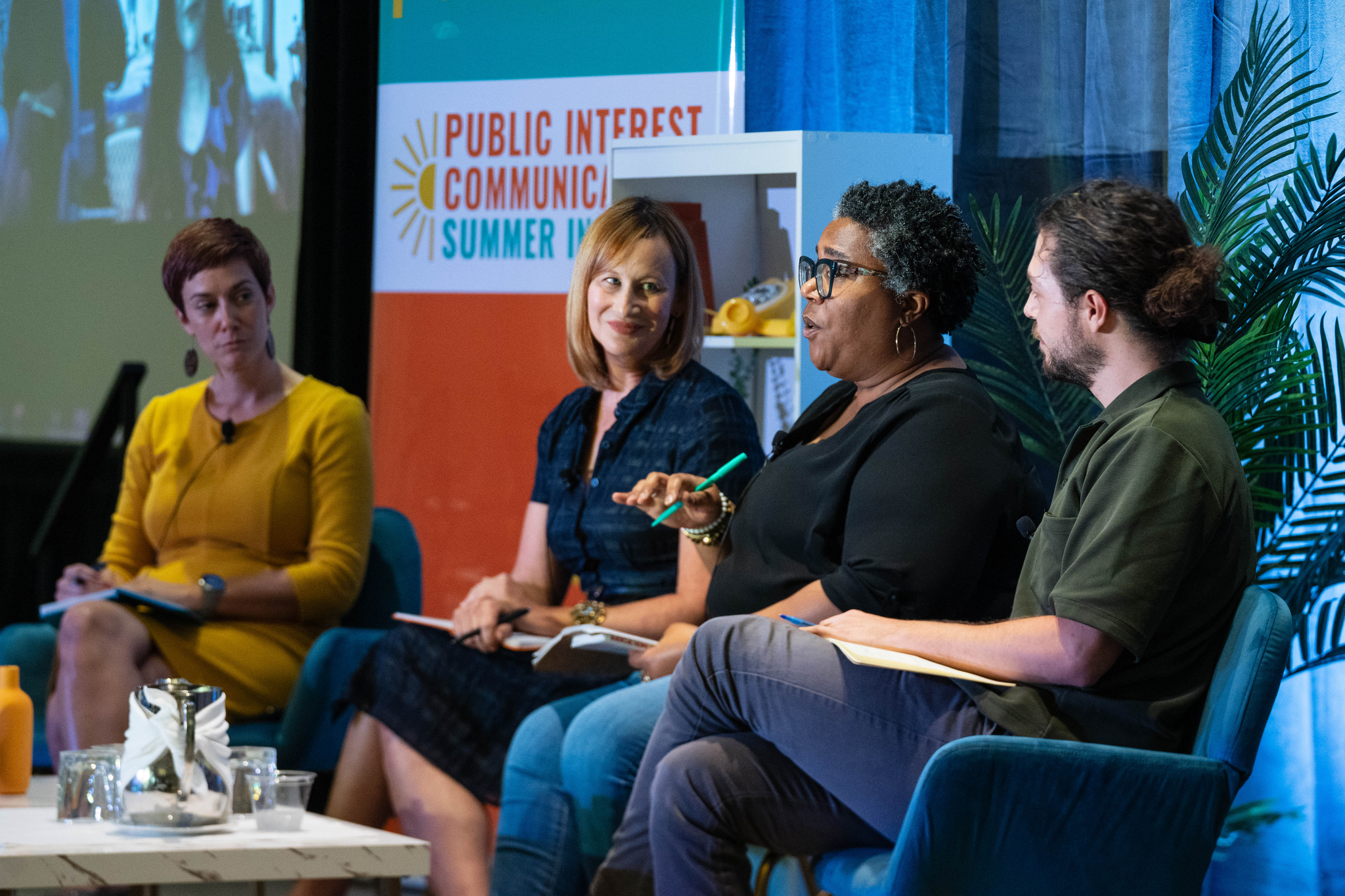Strategic Communications
for Positive Change
Join the growing field of Public Interest Communications, which uses strategic communications grounded in research and science to achieve sustained and positive social change.
What is Public Interest Communications?
Public interest communications is an emerging field that uses strategic communications grounded in research and science to achieve sustained and positive social change in areas ranging from climate change to health care access and housing policy. It borrows from its sister fields of public relations, advertising, journalism and marketing and is informed by sociology, psychology, neuroscience and political science.
Because of its emphasis on shared values, public interest communications can help us bridge divides and find common ground as we seek answers to some of our most difficult problems.
The issues to which public interest communications is applied transcend the interests of any single organization. The idea is to create lasting change by going beyond just raising awareness to motivating people to effect positive societal change.
Why Should I Pursue Public Interest Communications?
Public interest communications is needed now more than ever. Be one of a new generation of students representing an array of cultures and voices, and equipped with public interest communications and research skills that you can use to effect positive social change in the world.
Public interest communications is a rewarding field for anyone who wants to help make a positive difference in the world. Do you see a broad societal problem? You can apply public interest communications to help solve it. Careers range from being a communications director at a nonprofit organization or a media relations officer at a foundation to being an account executive at a strategic communications firm.
About the Public Interest Communications Program
Our public interest communications coursework is designed to help students learn how to use strategic, science-based communications to effect positive social change both in the U.S. and around the world. Students learn the core concepts of public interest communications and how to apply them.
Through hands-on work, students learn the basics of being a public interest communicator, including how to identify and reach key audiences; how to develop effective, values-based messaging; how to choose the right messengers; the importance of storytelling; how to use powerful visuals for maximum impact; how to use digital media to achieve communications goals; and how to develop a strategic communications plan. We offer both undergraduate and graduate courses.
In collaboration with faculty at universities across the country, we have begun organizing a Public Interest Communications Summer Institute. The goal is to bring together faculty, researchers, graduate students and practitioners who want to work together to build the field.
Frank Karel Endowed Chairs
The public interest communications program is directed by Angela Bradbery, B.S. Journalism 1986, the Frank Karel Endowed Chair in Public Interest Communications. Previously to joining CJC in 2020, Bradbery had spent more than 20 years with Public Citizen, one of the most effective public interest organizations in the country, and since 2006 had been Director of Communications. Her responsibilities included developing and implementing communication strategies at the national, state and local levels and leading communication planning and implementation for coalitions of allied public interest organizations.
Bradbery succeeded Ann Searight Christiano, who served as the inaugural chair since 2010 and built the first program in the country dedicated to public interest communications. Christiano’s achievements during her term include:
- Created the annual frank gathering, the largest event for public interest communicators and movement builders
- Established the first research prize in public interest communications, which is awarded annually for research that advances public interest communications around positive social change
- Established and directs the Center for Public Interest Communications as an educational business auxiliary that works with organizations around the world, including the United Nations, Bill & Melinda Gates Foundation, Spencer Foundation, UN Agency on Refugees, and the International Labour Organization
- Developed a curriculum and frameworks in collaboration with Ellen Nodine, Annie Neimand and Matt Sheehan, including the first ever master’s specialization.
About Frank Karel
As a leader who spent his 30-year career using communication for social change, and as vice president for communications for the Robert Wood Johnson and Rockefeller Foundations, Frank Karel, B.S. Journalism 1961, recognized the critical importance of strategic communication in taking on the world’s most important challenges. He also had a deep and abiding love for the College of Journalism and Communications, a place he referred to as his “Almie Mamie.”
Karel and his wife Betsy’s gift to the college — the Frank Karel Chair in Public Interest Communications — is a lasting testament to his leadership. The position was created for a practitioner, and one of its most unique aspects is that no one can hold the chair for more than 10 years.
Hundreds of students have had the opportunity to choose career paths that have led them into public interest communications positions. As one student said, “I never had the opportunity to meet Frank Karel, but he changed my life.”
Contact Us
For more information on the CJC Public Interest Communications Program, contact Karel Chair in Public Interest Communications Angela Bradbery


